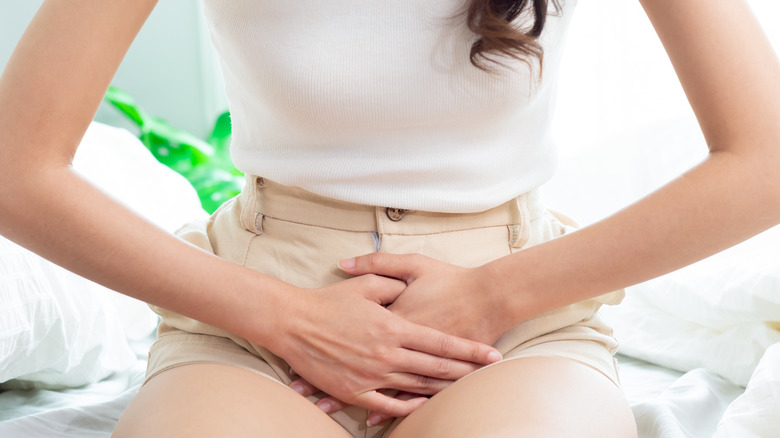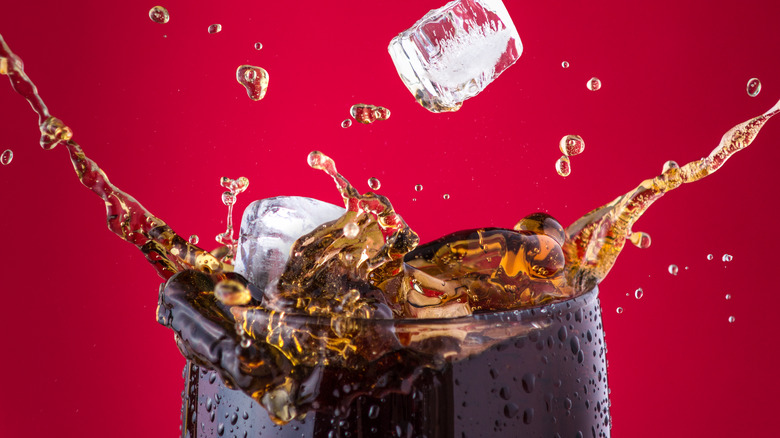How Soda Impacts Your Bladder
Your bladder is one of the most important organs of your body. Located in the pelvic region and shaped like a pear, it is responsible for storing urine and has the capacity to contain about 400 to 600 mL of urine, per WebMD. When it's time for you to pee, the sphincters at the opening of the bladder loosen up and allow the urine to pass out through your urethra, a duct that runs through the penis in males or through an opening between the labia in females (via Britannica).
Being such a critical organ puts it at a high risk for complications. If you're not careful, your bladder could be susceptible to serious issues such as bladder cancer, inflammation due to infection, or other ailments (via Medline Plus). It's also possible to experience urinary incontinence –- a condition that causes an inability to stop the flow of urine voluntarily, and as a result, it passes out at odd times. Bladder control issues may be caused by weak muscles, injuries, or pregnancy, explains the National Institute of Diabetes and Digestive and Kidney Diseases (NIDDK). They may also be triggered by unhealthy dietary or drinking habits, such as consuming too much caffeine or carbonated drinks.
Why is drinking too much soda harmful to your bladder?
A 2007 study published in Epidemiology analyzed over 800 patients with a new or previous diagnosis of kidney disease to figure out how often they drank carbonated drinks. Upon investigation, they found that those who were in the habit of drinking two sodas per day (particularly cola beverages) had a significantly higher risk of chronic kidney disease (CKD). This condition is associated with an increased need to pee and the inability to store urine for long in the bladder, according to the National Kidney Foundation. As a result, patients may have frequent nightly urges to urinate and may even notice blood in their urine, due to improper kidney filtration and excess waste in the body.
WebMD warns that drinking carbonated drinks such as sparkling water or soda too often can have a detrimental effect on your bladder, potentially leading to urinary incontinence or an overactive bladder. They also suggest limiting alcoholic beverage intake, as it could trigger involuntary urine leakage, particularly if you already have bladder incontinence problems.


